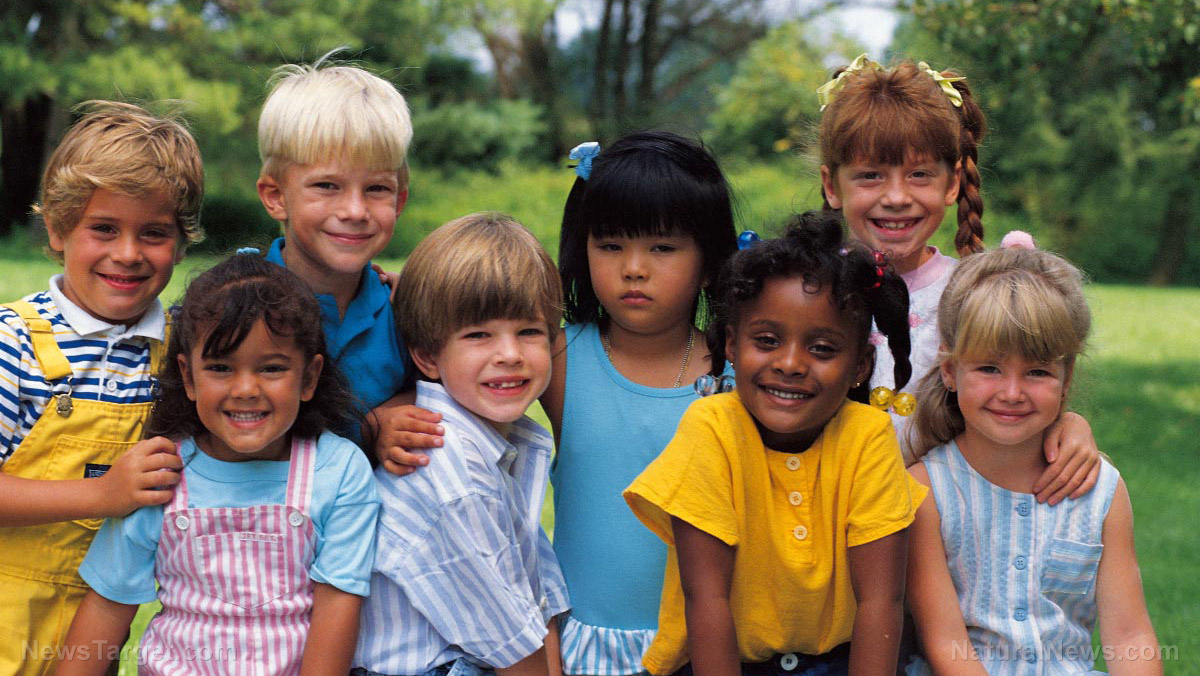Parental favoritism linked to substance abuse: Playing favorites can affect the self-esteem of children
09/11/2019 / By Isabelle Z.

Most parents will tell you that they don’t have a favorite child, and although they may well be telling the truth, their children might have another opinion entirely – and such a sentiment can be extremely damaging to their mental health.
In fact, researchers say that it doesn’t really matter if parental favoritism is real or not; even the slightest perception that their parents prefer another sibling can make kids more likely to turn to alcohol, drugs and cigarettes as teens. The effect is even more pronounced when the family isn’t close in general.
Research from Brigham Young University shows that less-favored children are twice as likely to use drugs, alcohol or cigarettes in general, but in the most disengaged families, they were 3.5 times more likely to use these substances. They reached their conclusions after studying 282 families with teenage siblings. Their findings appeared in the Journal of Family Psychology.
Unfortunately, it sometimes happens that a parent simply gets along better with one sibling than another. For example, an extroverted child might just click better with a similarly outgoing parent than a more withdrawn sibling does.
It’s not just about personality; a lack of shared interests can leave a child feeling like their siblings are favored. For example, a child who is into nature might bond with his dad who loves fishing, leaving a sister who’s not a fan of the outdoors feeling left out of the mix.
In addition, sometimes kids who are dealing with problems like anxiety or depression are harder to be around than their more stable siblings, which may lead them to perceive that their parents prefer spending time with the “easier” sibling.
Meanwhile, when a child has special needs or a health problem, their parents might devote so much time and energy to them that the other siblings grow resentful.
Regardless of the reason behind the perceived favoritism, the hit to a child’s self-esteem can be significant. The unfavored child may feel constantly defeated and could lack motivation after working hard to gain approval that never seems to come. In addition to depression, they may feel anger, jealousy or bitterness. They might even act out in an attempt to attract their parents’ attention, which can make things even worse.
Moreover, those who feel like their parents don’t accept them may struggle to accept who they are, a feeling that can lead them to turn to substances to help them cope as it affects their self-belief, body image, and ability to handle criticism.
It’s also worth noting that children who view themselves as being the favorite can suffer as well. For example, they may feel guilt or have negative relationships with their other siblings, who might be resentful toward them. As their parents age, they might also feel more pressure and stress as they could be expected to shoulder much of the weight of caring for their elderly parents.
Making sure your kids feel loved equally
So what can parents do if they’re concerned one child might feel unfavored? Researchers say that parents should talk to their children and explain why one child might get more attention as this can help reduce the resentment they feel.
Experts also suggest holding all your children to the same standards by rotating their responsibilities, like taking out the trash or cleaning up after meals. If they are all held accountable, it won’t seem like one is being treated differently.
Finally, the researchers in the BYU study say that showing your love to your kids more than you do already can go very far in ensuring good mental health, with “more warmth and less conflict” being the best approach.
Sources for this article include:
Tagged Under: Alcohol, children, depression, drugs, families, mental health, mind body science, parental favoritism, parenting, parents, substance abuse
RECENT NEWS & ARTICLES
COPYRIGHT © 2017 BEATDEPRESSION.NEWS
All content posted on this site is protected under Free Speech. BeatDepression.news is not responsible for content written by contributing authors. The information on this site is provided for educational and entertainment purposes only. It is not intended as a substitute for professional advice of any kind. BeatDepression.news assumes no responsibility for the use or misuse of this material. All trademarks, registered trademarks and service marks mentioned on this site are the property of their respective owners.



















